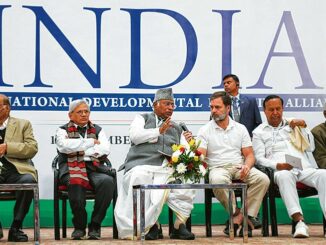Supreme Court order quashing arrest lays bare police design to circumvent due process
The Supreme Court of India’s order invalidating the arrest and remand of NewsClick founder Prabir Purkayastha is much more than a technical outcome based on the failure of the Delhi police to furnish the grounds for his arrest in writing. It is also an indictment of the clandestine manner in which the police sought to obtain his custody. As if invoking the Unlawful Activities (Prevention) Act against the web portal was not malign enough — the case seems fictional in its entirety, and establishes no overt act that can even be described as unlawful, much less a terrorist act — the police seemed to have resorted to what the Court called a “blatant attempt to circumvent the due process of law”. The Court did not go into the merits of the case at this stage, but said enough to warrant an adverse inference about the absence of bona fides. Mr. Purkayastha was produced before a remand judge before dawn and his police custody obtained at 6 a.m., even though the police had the entire day to comply with the statutory requirement of producing him before a court within 24 hours. The police kept his lawyer in the dark about the early morning proceedings, and instead had a ‘remand advocate’ readily present during the proceedings. The idea was “to confine the accused to police custody without informing him the grounds on which he has been arrested; deprive the accused of the opportunity to avail the services of the legal practitioner of his choice so as to oppose the prayer for police custody remand, seek bail and also to mislead the court”.
The judgment is also notable for extending, to the UAPA, the principle laid down in Pankaj Bansal (2023) that those arrested under the Prevention of Money Laundering Act should be given the grounds of their arrest in writing. In fact, interpreting the relevant constitutional provisions, the Court says this may be required as a matter of course and without any exception for the arrest of any person under the UAPA or any other offences. The police recently filed a charge sheet in this case, which makes the outlandish claim that Mr. Purkayastha was funded by the Chinese government and that he and American millionaire Neville Roy Singham were involved in an alleged conspiracy to replace Indian democracy with a party-state system as in China. It speaks of their support to fomenting riots and protests in India and even funding terrorists. Given the grave, even if far-fetched, nature of the allegations against him, regular bail would have been difficult to come by. Therefore, it is salutary that the Court has treated the level of adherence to procedure — the need to furnish the grounds of arrest in this case — as sacrosanct.
(The Hindu)




Be the first to comment